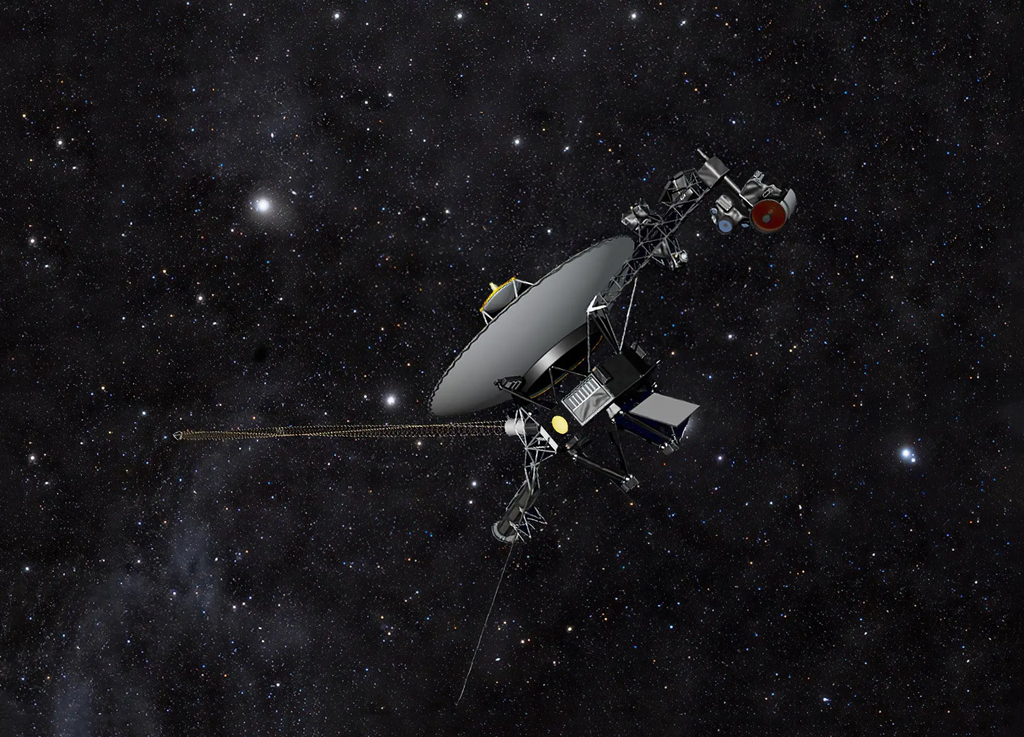NASA’s Voyager 2 has lost communication with Earth due to an unintentional shift in its antenna direction. The next programmed orientation adjustment on October 15 is expected to restore communication, while Voyager 1 continues to operate as usual.
A series of scheduled commands directed at NASA’s Voyager 2 spacecraft on July 21 led to an unintentional change in antenna direction. Consequently, the antenna moved 2 degrees off course from Earth, causing the spacecraft to lose its ability to receive commands or transmit data back to our planet.



This assumes their understanding of what caused the problem is accurate.
Should it be ever so slightly imprecise, it could mean we lose contact forever.
This is one of those things that sounds meaningful, but can be said about literally any problem in any system. Not all knowledge requires the same level of precision for confidence.
If the engineers at NASA who are familiar with the system say this is a known error state that will be fixed the next time the system designed to correct it fires on its set schedule, there’s not a whole lot added by saying sure, but what if they’re wrong?
It’s just restating the table stakes of existence.
But what if I, armchair scientist on Lemmy, sees a flaw in the plan of some of the greatest engineers in the world? Doesn’t the world deserve to know what I think about the communications system I just became aware of today?
Lol. The knee-jerk contrarianism online really gets under my skin, especially when it’s towards experts.
Like yeah, sometimes experts are wrong or systems don’t behave as expected. But framing that as some sort of erudite insight really bugs me.
“I hope the recovery system works!” doesn’t need to be rewritten as “Mmm yes. But what these engineers haven’t considered is the possibility that they are wrong”.
I had a laugh at this line:
Brilliantly put. It’s like saying to a stranger on an airplane, “If these pilots don’t know how to fly, we are gonna die!”
Plot twist… he is the lead engineer on the team.
No but the experts could be right or wrong. Two possibilities so that means there’s a 50/50 chance.
/s
deleted by creator
I smoke two joints before I smoke two joints and then I smoke two more
deleted by creator
No, the level of precision that is required for this is quite literally unprecedented. You can try and dig at my post all you want, but it just seems like you have an axe to grind.
Precision for what? Knowing their cron job will fire? Knowing what was wrong with the commands they sent? Neither of those are crazy precise or ambiguous statements?
The only highly precise thing that needs to happen is the alignment of the antenna but that system has been working for decades already and has been thoroughly tested.
NASA tends to be pretty straightforward when talking about risks, and if they feel like all the systems are in working order and there’s a good chance we’ll be back in contact with it, I think it’s worth talking them at their word.
Like yeah, it’s impressive they can aim an antenna that precisely, but using stars to orient an object is a very very well understood geometry problem. NASA has been using that technique at least as far back as Apollo
When was the last time the maneuvering jets were fired off? Especially so in the crafts current condition of it being in a very low power mode? They may know the craft and its design well but they’re not there seeing the craft in its current condition to know if things will work as they would want them to.
There’s a million things that can go wrong that they’re not aware of, his original comment is actually correct and not worthy the attack it’s getting. There’s always the unknown when you’re working with hardware and software, especially in deep space.
And my axe.
I think if there’s anyone that knows anything about telemetry, it’s NASA. These machines have been engineered for these scenarios for decades by some of the most unfathomably brilliant minds that have straight dedicate their lives to this. The science of this has been confirmed by similarly brilliant minds the world over.
I don’t think I’m prepared to lose another space robot.
You’re right, internet stranger. I bet they have not considered the possibility that Voyager 2 might have been eaten by a space whale. Like why aren’t the lame-stream fake news channels even discussing the space whale theory. Voyager 2 might even be intact inside the belly of the beast, and if NASA engineers haven’t factored this new data into their calculations about how fast a space whale would float through space with the additional mass and inertia of a functional probe, the signal could be lost forever.
I challenge Neil Degrass Tyson to a debate about space whales and how much they would theoretically be able to swallow whole.